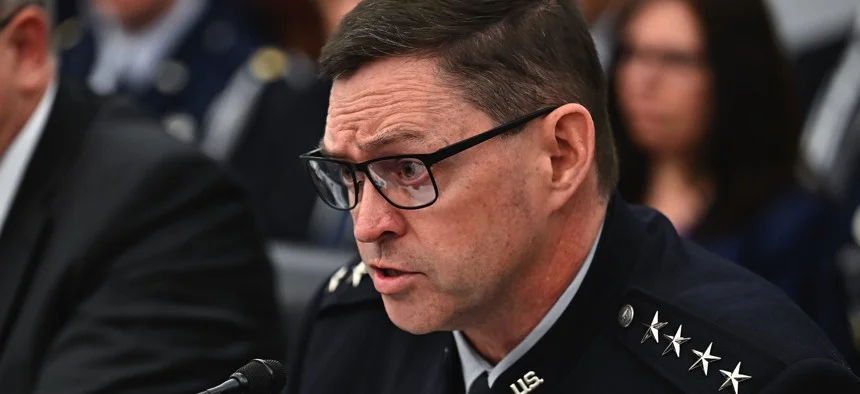
Space Force Hit Hard by Civilian Workforce Reduction: Tech Mission in Jeopardy?
The U.S. Space Force is facing unexpected turbulence. Recent reports indicate a significant reduction in its civilian workforce, raising concerns about the future of its technological missions. But why is this happening now, and what does it mean for the security of America's interests in space?
According to multiple sources, the Space Force has lost approximately 14% of its civilian workforce in recent months. This reduction is attributed to a Department of Defense (DOD) initiative aimed at cutting the civilian workforce across the board. Defense Secretary Pete Hegseth directed a reduction of the civilian workforce across the DOD by 5%-8% as part of "restoring readiness in the force".
Gen. Chance Saltzman, chief of space operations, addressed the Senate Armed Services Committee this week, highlighting the impact on the Space Force. While the DOD-wide reduction is intended to streamline operations, the Space Force, being a relatively young and smaller branch, is feeling the pinch more acutely. Saltzman emphasized the critical role these civilian workers play, stating, “We rely heavily on our civilian workforce. They bring expertise that we don’t have in active duty. They bring corporate continuity across all of our processes and procedures.”
The timing of these cuts is particularly problematic. The Space Force is expanding its mission scope, including preparing for offensive and defense operations in space and assisting in constructing the new Golden Dome architecture. Sen. Jack Reed, D-R.I., ranking member of SASC, cautioned that the service won’t be able to buy systems and take over these new missions without these critical workers.
Adding to the challenge, the Space Force faces criticism regarding its technological progress. Tasks like GPS modernization and hardening satellite networks against spoofing attacks have been experiencing delays. As stated in a report by the US Government Accountability Office issued last year, auditors said the Space Force's own data suggested the GPS system was unlikely to be ready until the end of the decade due to satellite launch delays and a lack of ground infrastructure that supports M-Code capabilities. Meanwhile, the threat of space weapons from Russia and China is increasing.
"We are not adequately funded for the new missions that I've been given in space superiority," Saltzman stated during the hearing, underscoring the precarious situation.
The question now is whether the Space Force can overcome these challenges and effectively fulfill its mission to secure America's interests in space. Will the loss of experienced civilian personnel and the ongoing budget constraints hinder its ability to keep pace with emerging threats? The future of U.S. space security may well depend on how these issues are addressed.
What are your thoughts on the impact of these workforce reductions on the Space Force? Share your opinions and insights in the comments below!